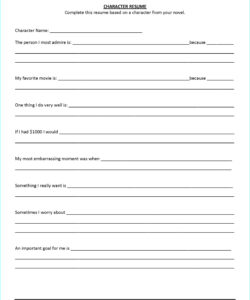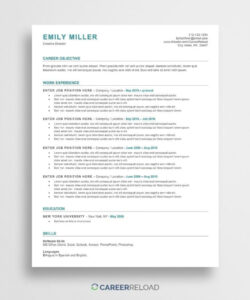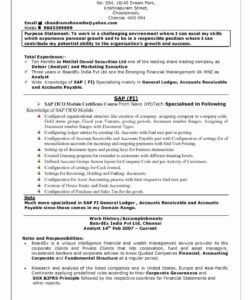When you’re applying for a job, you may come across the term “designation” on a resume. But what does it mean? In this article, we’ll explore what designation is, why it’s important, and how to use it effectively on your resume.
Designation refers to the title or position that you hold in your current or previous job. It’s a way of describing your role and responsibilities in a concise and professional manner. For example, if you’re a software engineer, your designation might be “Software Engineer” or “Senior Software Engineer.”
Why is Designation Important?
Designation is an important aspect of your resume because it gives potential employers a quick snapshot of your experience and expertise. It helps them understand your level of seniority, the scope of your responsibilities, and the skills you’ve developed over time. This information can be especially useful when they’re trying to determine whether you’re a good fit for a particular role.

Another reason why designation is important is that it can help you stand out from other candidates. If you have a unique or impressive designation, it can catch the eye of a recruiter or hiring manager and make them more interested in learning more about you.
How to Use Designation on Your Resume
When you’re writing your resume, it’s important to include your designation in a prominent place. Typically, this means including it in the header or summary section of your resume. You should also make sure that your designation is consistent across all of your job titles and descriptions.
When describing your designation, it’s important to use clear and concise language. Avoid using jargon or acronyms that may not be familiar to everyone. Instead, focus on describing your role and responsibilities in a way that’s easy to understand.
FAQs
What is the difference between designation and job title?
Designation and job title are often used interchangeably, but there is a subtle difference between the two. Job title refers to the name of the position that you hold, while designation refers to the level of seniority and responsibility associated with that position.
How do I choose the right designation for my resume?
When choosing a designation for your resume, it’s important to consider your level of experience and the scope of your responsibilities. If you’re just starting out in your career, you may want to use a more junior designation, such as “Associate” or “Assistant.” If you have more experience and seniority, you may want to use a more senior designation, such as “Manager” or “Director.”
Can I use multiple designations on my resume?
Yes, you can use multiple designations on your resume if you’ve held multiple positions with different levels of seniority and responsibility. However, it’s important to make sure that your designations are consistent across all of your job titles and descriptions.
How do I list my designation on my resume?
You can list your designation in the header or summary section of your resume, along with your name and contact information. You should also include your designation in the job title and description for each position that you’ve held.
What if I don’t have a designation?
If you don’t have a formal designation, you can still describe your role and responsibilities in a way that’s clear and concise. Focus on using descriptive language that highlights your skills and experience, and avoid using jargon or acronyms that may not be familiar to everyone.


